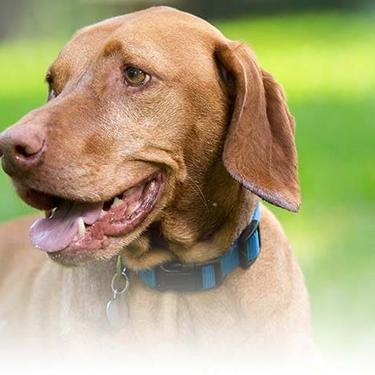
-
Find the right food for your pet
Take this quiz to see which food may be the best for your furry friend.
Find the right food for your pet
Take this quiz to see which food may be the best for your furry friend.
Featured products
 Small & Mini Savory Stew with Chicken & Vegetables Dog Food
Small & Mini Savory Stew with Chicken & Vegetables Dog FoodA delicious complement to the nutrition of Science Diet Small & Mini 7+ dog food
Shop Now Adult Healthy Cuisine Roasted Chicken, Carrots & Spinach Stew Dog Food
Adult Healthy Cuisine Roasted Chicken, Carrots & Spinach Stew Dog FoodDelicious roasted chicken paired with tender vegetables in a succulent stew
Shop Now Adult 7+ Perfect Digestion Chicken, Whole Oats & Brown Rice Recipe Dog Food
Adult 7+ Perfect Digestion Chicken, Whole Oats & Brown Rice Recipe Dog FoodScience Diet's breakthrough nutrition supports ultimate digestive well-being & healthy microbiome for dogs age 7+
Shop NowFeatured products
 Adult 7+ Senior Vitality Chicken & Vegetable Stew Cat Food
Adult 7+ Senior Vitality Chicken & Vegetable Stew Cat FoodImproves Everyday Ability to Get Up & Go
Shop Now Adult 7+ Tender Tuna Dinner Cat Food
Adult 7+ Tender Tuna Dinner Cat FoodWith delicious chunks in a decadent gravy
Shop Now Adult Savory Entrée Can Variety Pack Cat Food
Adult Savory Entrée Can Variety Pack Cat FoodPrecisely balanced nutrition with the delicious taste of savory minced chicken to help fuel the energy needs of cats during the prime of their life
Shop Now -
Dog
- Dog Tips & Articles
-
Health Category
- Weight
- Food & Environmental Sensitivities
- Urinary
- Digestive
- Joint
- Kidney
-
Life Stage
- Puppy Nutrition
- Adult Nutrition
- Senior Nutrition
Cat
- Cat Tips & Articles
-
Health Category
- Weight
- Skin & Food Sensitivities
- Urinary
- Digestive
- Kidney
-
Life Stage
- Kitten Nutrition
- Adult Nutrition
Featured articles
 Does My Pet Hate Me?
Does My Pet Hate Me?Learn tips for bonding with your pet if you've ever thought, 'My dog doesn't like me, or 'Why do I have a standoffish cat?'
Read More Do Dogs and Cats have Belly Buttons?
Do Dogs and Cats have Belly Buttons?Learn whether cats & dogs have belly buttons like humans, what the function is, and if there are any health concerns associated with it.
Read More Why Are Dogs and Cats So Cute?
Why Are Dogs and Cats So Cute?If waggy puppy dog tails and furry kitten yawns make you swoon, you're not alone. Why are cats so cute? And, dogs too! Let's find out!
Read More -


If you're a dog parent, chances are pretty good that you've observed your dog running in their sleep and wondered what on earth is causing those sleeping legs to move so much. Well, wonder no more! We've got the low-down on what causes dog sleep running and other quirky canine sleep behaviors.
Running, Twitching, and Barking
Although it might seem that dog sleep running is a distinct behavior from the twitching, barking, and other vocalizations dogs also sometimes do in their sleep, the truth is that these behaviors are all related, which is why they often happen at the same time. Whether you have a dog running in their sleep, twitching, barking, whining, or all of the above, what you actually have is a dog that's dreaming.
Dogs' brains are structurally similar to those of humans, according to Psychology Today, and they go through the same electrical patterns that human brains go through during the sleep cycle. This includes rapid eye movement, otherwise known as REM sleep, during which dreaming occurs. Many dogs try to physically act out their dreams–which often involves reliving memories of what they did that day–and this is the cause of sleep running, barking, and twitching.
Sleep Position

You may have wondered why your dog always curls up in a ball when he lies down to sleep, even when it's not cold. According to Vetstreet, this behavior is an evolutionary holdover from their ancestors. In the wild, wolves and wild dogs curl up while sleeping in order to protect their vulnerable organs from an attack.
But if that's the case, then why do some dogs sleep on their backs with their bellies exposed? A small percentage of dogs are comfortable sleeping this way–Vetstreet estimates between five and ten percent. Easy-going, well-socialized dogs with temperaments that are a far cry from their wolf cousins and ancestors may favor that position. If your pup likes to sleep on their back, this is a sign that they trust you and feels safe and secure in their surroundings.
Turning Circles and Digging
Another strange behavior you might have observed during your dog's bedtime is a habit of scratching the floor and turning in circles before lying down, even on a soft surface like a bed or pillow. This behavior goes all the way back to the same nesting instinct that compels dogs to curl up to sleep. In the wild, their canine ancestors would dig to soften the ground and create nests to lie down in, which would offer added protection and help to regulate body temperature. They would also turn circles to tamp down the dirt, leaves, or grass lining of their bed to make it more comfortable. Why this instinct has survived thousands of years and is still strong in domestic dogs today remains a mystery.


Tasty Tips
Snoring
Most dogs can be heard sawing logs in their sleep from time to time. However, some do it more often than others. Dogs snore for the same reason humans do–because of an obstruction in the airway. This obstruction can have a number of causes, including allergies or respiratory illness, obesity, or the shape of the snout. Bulldogs, for example, are notorious snorers because of their compact snouts.
While occasional snoring is nothing to be concerned about, chronic snoring could indicate a more serious problem with your pup. In all likelihood, a dog that snores a lot while asleep also has difficulty breathing while awake, warns PetMD. Because dogs rely on the ability to breathe rapidly to help regulate their body temperature, the inability to do so could have serious repercussions on their health. So if you have a chronic snorer, you should visit your veterinarian to determine the cause of their snoring.
Dogs sleep for hours throughout the day, providing plenty of opportunities to observe these quirky behaviors. So the next time you notice your dog running in their sleep, you can smile knowing they're having a blast chasing dream squirrels or playing a game of dream fetch.


Jean Marie Bauhaus is a pet parent, pet blogger, and novelist from Tulsa, Oklahoma, where she usually writes under the supervision of a lapful of fur babies.
Related products

A delicious complement to the nutrition of Science Diet Small & Mini 7+ dog food

Delicious roasted chicken paired with tender vegetables in a succulent stew

Delicious braised beef paired with tender vegetables in a succulent stew

Science Diet's breakthrough nutrition supports ultimate digestive well-being & healthy microbiome for dogs age 7+
Related articles

Your dog's coat and skin are a big part of your dog's overall health. Ensure you keep your dog's coat healthy, by following these simple tips.

Large and giant breed puppies have different nutritional needs than other dogs. Learn how to provide the special care they need to grow up big and strong.

Learn about choosing the right food for your mature or older dog, ensuring he receives the correct balance of nutrition.

Hill's Science Diet Small & Toy Breed dog foods are designed to meet the nutritional needs for your small dog at every life stage. Learn more here.

Put your dog on a diet without them knowing
Our low calorie formula helps you control your dog's weight. It's packed with high-quality protein for building lean muscles, and made with purposeful ingredients for a flavorful, nutritious meal. Clinically proven antioxidants, Vitamin C+E, help promote a healthy immune system.
Put your dog on a diet without them knowing
Our low calorie formula helps you control your dog's weight. It's packed with high-quality protein for building lean muscles, and made with purposeful ingredients for a flavorful, nutritious meal. Clinically proven antioxidants, Vitamin C+E, help promote a healthy immune system.

